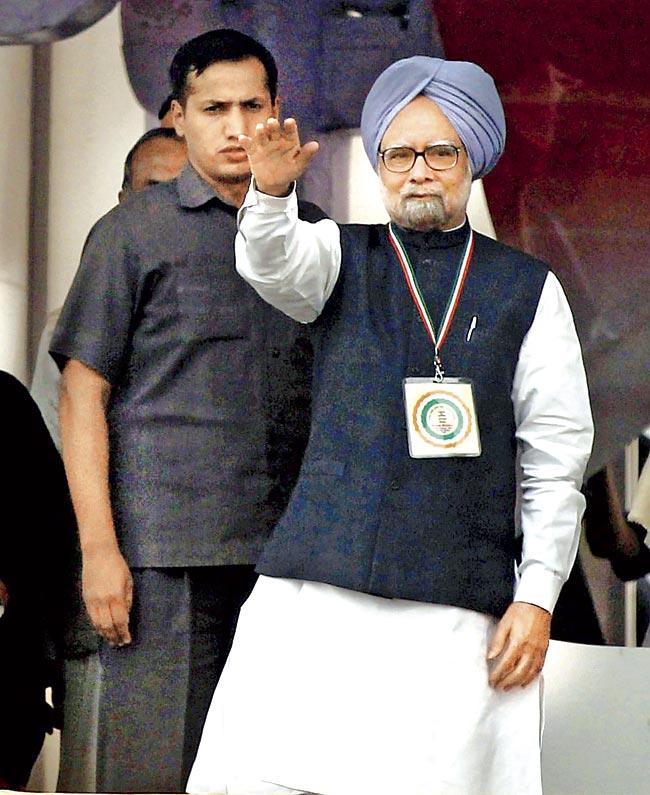Recently I attended a lecture by Kishore Mahabubani, the Dean of the Lee Kuan Yew School of Public Policy at the National University of Singapore where he posed a question: Can India be Cunning?

 Recently I attended a lecture by Kishore Mahabubani, the Dean of the Lee Kuan Yew School of Public Policy at the National University of Singapore where he posed a question: Can India be Cunning?
Recently I attended a lecture by Kishore Mahabubani, the Dean of the Lee Kuan Yew School of Public Policy at the National University of Singapore where he posed a question: Can India be Cunning?
He argued why India has to junk the remnants of a moralistic foreign policy and employ means that may not seem ethical. He said that as long as ends justify the means, a country shouldn’t be too caught up on morals.
ADVERTISEMENT

It’s not as if Dr Manmohan Singh survived as Prime Minister in UPA-1 by being Mr Nice Guy. He and the famed dirty tricks department of the Congress did stuff that needed to be done to keep the government in place
In a land where Kautilya penned the Arthashastra, where the Mahabharata chronicles cunning practices of rulers, it is like preaching to the choir. India’s moralistic stance, whether in internal security or foreign policy, often camouflages its pursuance of its national self-interest. Had India not been cunning, then Bangladesh wouldn’t be an independent country, Sikkim wouldn’t have merged with India and Nepal would have been nestling in China’s lap.
Had we not had a cunning internal security policy, the status of Arunachal Pradesh, Kashmir, Nagaland and Goa would probably not have been what it is today. If we were all that moralistic as we portray ourselves to be, Maoists would have run amok in the country, jehadis would be riding openly in state transport buses like they do in our adorable neighbour to the west.
The word cunning though does make us feel uncomfortable. It has negative connotations. It sits somewhere between clever and sly. We elect leaders who are cunning because otherwise they could not possibly govern a country of our size and structure.
A billion plus people with multiple cultural and religious identities and traditions that date back to 2600 BC. A recent history that has seen wars, famines and internal disturbances. No sir, this country cannot be governed by anybody who is not cunning.
But we need cunning leaders who are committed to national interest, and not their own self interest. As Machiavelli noted in The Prince, “The essence of successful government is force and craft.”
That is why we elect leaders who may not be very likeable personalities if we invite them to our drawing rooms, but can muscle their way in global forums or take harsh decisions when necessary, even if it means they may not look morally right. They need to be compassionate and empathise with the citizens but shouldn’t hesitate to take decisions on their behalf which may not be compassionate and kind.
It’s not as if Dr Manmohan Singh survived as Prime Minister in UPA-1 by being Mr Nice Guy. He and the famed dirty tricks department of the Congress did stuff that needed to be done to keep the government in place and save the country from another election. Similarly Atal Bihari Vajpayee had the Chanakya of our times, Brajesh Mishra as his principal secretary to ensure that he had one of the strongest PMOs in recent times.
On March 18, 1998, the day before he was sworn in as prime minister, PM-designate Vajpayee declared, “There is no compromise on national security. We will exercise all options including nuclear options to protect security and sovereignty.” And sure enough, India conducted five nuclear explosions on 11 and 13 May 1998.
This was a strong decision taken by a Prime Minister who was running a coalition government. He had his own coalition dharma, a shrewd, cunning and crafty one. But he was neither ferocious nor dictatorial and that is why he had the support of his party, the coalition and the country.
The same could be said about Indira Gandhi for most of the years that she was prime minister. When she crossed the Lakshman Rekha and her craftiness started taking evil contours, she was booted out. A lesson that our politicians never seem to learn. Jayalalithaa, Mayawati, Karunanidhi and several other regional satraps have had to bear the brunt of people’s anger when they abused the faith that people had reposed in them.
It takes a lot of charm and effort to go back to the people and seek their forgiveness. Thus successful leaders would need both high IQ (intelligence quotient) and EQ (emotional quotient). While voting in the 2014 elections, we would need to watch for this balance in our candidates.
An ideal candidate would have the right balance of cunningness and nobility which can serve national interest and not his self-interest. Politicians are manipulative because their job demands that. But so are CEOs and Sarpanchs. When you assume leadership roles, you have to sometimes take decisions where ends justify the means. Though desirable, ethical and moral frameworks have to sometimes remain subservient to the pragmatic task of pursuing our national interest.
Smita Prakash is Editor, News at Asian News International. You can follow her on twitter @smitaprakash
 Subscribe today by clicking the link and stay updated with the latest news!" Click here!
Subscribe today by clicking the link and stay updated with the latest news!" Click here!







